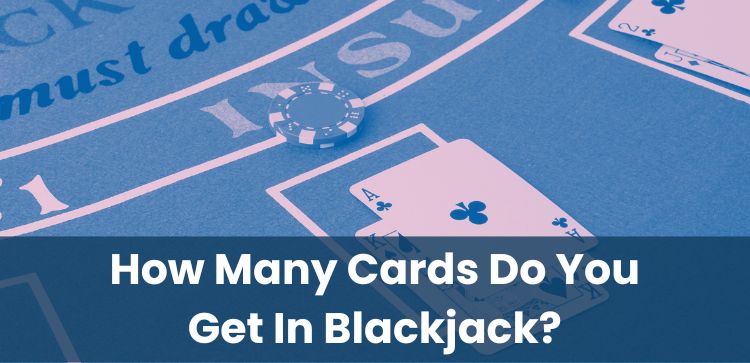
Blackjack is a well-respected card game found in both online and land-based casinos. It is appreciated for its straightforward rules and the various strategies players can implement. If you're new or simply refreshing your knowledge, understanding how many cards you start with is an important aspect of the game.
In blackjack, every card has value and knowing the basics can help you decide wisely during a hand. Whether you're playing online or at a table, understanding the rules is essential.
This blog post aims to provide readers with a solid foundation of knowledge about blackjack card dealing, so read on to learn more.
How Many Cards Are Used In Blackjack?
Blackjack typically uses one or more standard decks of cards, each containing 52 cards.
In many online and casino settings, several decks are combined to make what's called a "shoe". This is especially common in games dealt from a table, where up to eight decks might be used.
Using multiple decks could possibly impact some aspects of the game, such as the odds and strategies involved; however, the basic rules and goal remain the same regardless of how many decks are used.
Remember, the number of decks can vary depending on where you're playing, so this is something you might want to consider when choosing your blackjack game.
Whilst knowing this information can be handy, it’s important to emphasise that blackjack is ultimately a game of chance, and the casino will always have an edge over the players.
For a well-rounded blackjack experience, players should aim to keep entertainment in the forefront of their mind, as opposed to potential financial gain.
Are Multiple Decks Used In Blackjack?
In many games, you'll find anywhere from one to eight decks of cards combined into a "shoe". This approach is common in both online platforms and brick-and-mortar casinos.
The use of multiple decks can slightly adjust the dynamics of the game, including the odds and strategies that experienced players might consider. Despite these variations, the foundational rules remain unchanged.
Playing with more decks can add diversity to your experience, but it's always beneficial to stay informed about which kind of game you're joining. Casinos may offer different setups, so being aware of how many decks are used could be helpful.
How Many Cards Do You Get Dealt In Blackjack?
When playing blackjack, each player is initially dealt two cards. This is standard whether you're playing at a physical casino or online.
As the game begins, both you and the dealer receive two cards. However, the dealer usually reveals only one of their cards while you see both of yours.
Once you've got your two cards, the game progresses with rounds where you can choose to take additional cards, one at a time. This process is called "hitting," and it allows you to adjust your hand's total value as the game goes on.
Every decision to take more cards or stay with your current hand is crucial, as you aim to reach as close to 21 as possible without going over. Understanding the basic deal of two cards is a root principle of the game that informs all your next steps.
How Many Cards Does The Dealer Start With?
At the start of a game of blackjack, the dealer begins with two cards, just like the players.
However, there's a key difference: typically, one of the dealer's cards is dealt face up, and the other is faced down. The face-up card is often referred to as the "upcard," while the facedown card is the "hole card."
The visible upcard gives you some insight into the dealer's hand, which can be important for forming your own strategy. The dealer's actions will follow predefined rules, such as standing on a hand of 17 or higher.
Understanding the dealer's starting hand can help you get a sense of how the game might unfold, but the outcome is never certain. Both the dealer's and your decisions will shape the order of play from the first deal.
Remember, keeping yourself informed about these key elements sharpens your engagement with the game while supporting a responsible gambling approach.
**The information provided in this blog is intended for educational purposes and should not be construed as betting advice or a guarantee of success. Always gamble responsibly.
